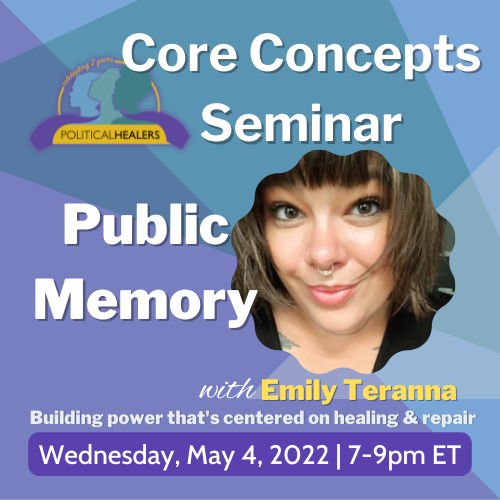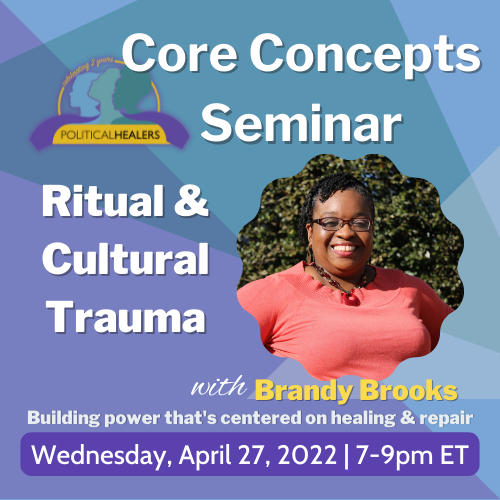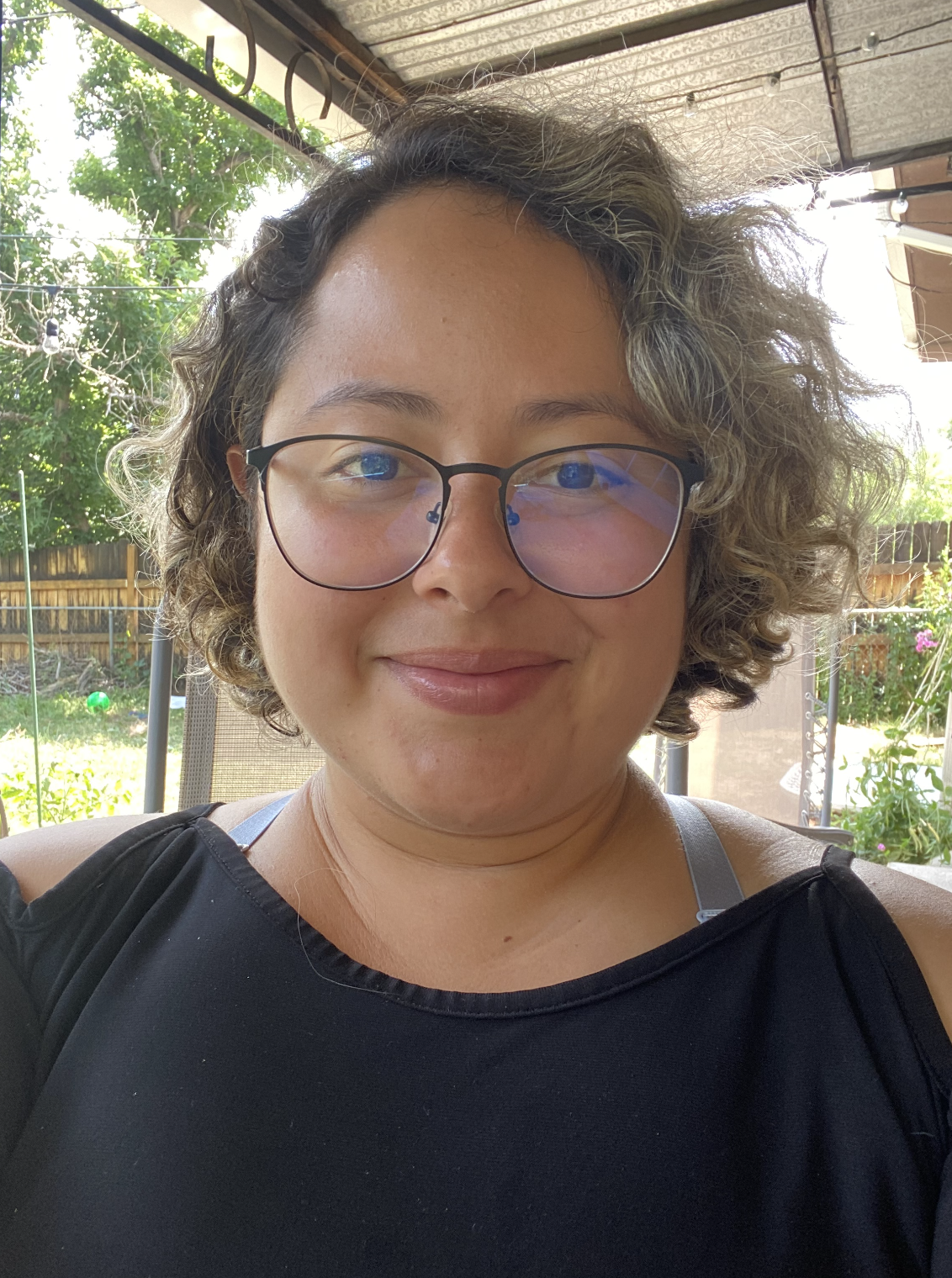Cost
General Admission
Whole Series $100
Individual Sessions $30
Session 1: Reproductive & Emotional Labor with Arique Aguilar
Reproductive and Emotional labor are the forms of work that have regularly been associated with the feminine end of the gender spectrum and, at the same time, have not been fully compensated, nor regarded as leadership. They have been seen as labor that women, or femme-identified people are supposed to do, not as an expression of their talents or skill sets. Yet society would not run without this labor. In this session participants will explore the roles that reproductive and emotional labor have played and currently play in their lives, where their labor is erased, and where they are forced to participate in erasing their own labor. Managing our emotional labor requires us to develop our skills at setting and communicating boundaries. Therefore, participants will also learn a Political Healers healing practice called Navigating Spaces, which is a tool that enables one to manage and communicate their needs and boundaries in ways that support PIES energy renewal.
NOTE: this session has the potential for bringing forth charged or painful emotion. Healing support will be provided, but please participate to the edge of your own emotional resilience.
Session #3: Ritual & Cultural Trauma with Brandy Brooks
“Ritual” is a word that is commonly associated with religious activities. While that may be true in some instances, ritual is actually a core building block of culture and cultural expression. Rituals are regularly repeated acts that occur in a prescribed order. Personal rituals, familial and community rituals, and rituals associated with our race, ethnicity, or class identities, or our care communities help to create ties with others and to define the ways we understand our relationship to others. Cultural trauma, or the events that forever impact a group of people or a community, also create rituals that can be either healing or harmful. In this session we will explore our connections to ritual, culture and collective, as well as the collective traumas that we have experienced, and the healing and harm rituals we have created. Participants will also do a deeper dive into PIES practice through assessment and renewal skills. These skills aim to develop participants’ self-awareness pillar of emotional intelligence.
NOTE: this session has the potential for bringing forth charged or painful emotion. Healing support will be provided, but please participate to the edge of your own emotional resilience.
Seminar Trainers
Arique Aguilar (they/them)
My name is Arique Aguilar (they/them) and I am one of the founding mothers of Political Healers. I have 13 years of organizing and facilitation experience and have recently transitioned into software development in efforts to identify opportunities in tech for scalability and global reach of our work. My biggest hopes for Political Healers as an organization is training and sharing with as many people as possible the power of open and honest communication, consensual public healing, and strategic management of emotional labor transformed into political power.
Brandy Brooks (she/her/ella)
Brandy Brooks (she/her/ella) is the Co-Director of One Square World and serves on the Leadership Team for Political Healers. Brandy is an activist, educator, facilitator, and designer with 15 years of experience working on social and environmental justice. Her expertise includes: community organizing and power-building, community-based design and land use planning, and food justice and food sovereignty. She was the founding executive director of the Community Design Resource Center of Boston and has held senior management roles in various institutions. Brandy supports equity and justice for communities of color and communities with low income and wealth by advocating for equitable representation and community-led decision-making in housing, land use development, economic development, environmental and climate policy, and other critical community issues. Brandy holds a Master in Public Administration with a concentration in Nonprofit Management from Suffolk University, and a Bachelor of Design Studies with a concentration in Design Computing from the Boston Architectural College. She is also an alumna of Harvard College. Brandy is currently a candidate for Montgomery County (MD) Council At-Large in the 2022 Democratic Primary.
We say that a Political Healer is someone who uses ritual to bring cultural trauma into public memory, but what does that mean? What does it look like? As a continuation of the foundational training series, this 4-part seminar delves into the core analysis that frames the Political Healers feminine leadership development model, through political education and healing practice. Through paired and group discussions, each session offers an opportunity to reflect upon one PH core concept, and apply it to the work you’re doing in your life. Each session also provides skills training in at least one healing practice, and you will have an opportunity to choose if/how you use this healing practice in the service of your own healing, healing others, and your other public and private life pursuits.
Each seminar session is connected to the other seminar sessions, so it’s highly recommended that you attend all 4 sessions. That said, you will be warmly welcomed and included for whenever you can attend.
Prerequisite: Must have participated in both “Foundation of Feminine Leadership” and “Feeling Safe, Seen and Heard: Trauma-informed Practice (TIP) in Movement Spaces” training sessions to participate in this seminar series. For further questions, please contact the PH training team at: trainings@politicalhealersx.org.
CG Hosts/Member Orgs
Whole Series $20
Individual Sessions $5
Community Gathering Hosts: contact Angum-Peri Check to receive CG Host promotion code, prior to registering for the seminar: angum@politicalhealersx.org
Session 2: Shame & Vulnerability with Mich Lovegood
According to Brene Brown, shame is “the fear of separation from others.” And yet shame FEELS like so much more than that. Shame is both as complicated as the intersections between race, class and gender expressions and as simply put as “shame tapes,” the voices and recordings we hear in our heads, the things that we say about ourselves that guide our emotions, our thoughts, our behaviors and wreak havoc on our well-being – aka, not so simple. This seminar session is an intellectual and an emotional exploration of the role shame plays in our lives, the shame tapes that we hear, and how these shame tapes are associated with our race, class, gender and other identity scripts. The healing practice for this session will be 2-3 trauma-informed practice (TIP) pro-tips for healing shame through practiced vulnerability.
NOTE: this session has the potential for bringing forth charged or painful emotion. Healing support will be provided, but please participate to the edge of your own emotional resilience.
Session #4: Public Memory with Emily Terrana
As the saying goes “history is written by the victors,” the real-life experiences of marginalized individuals, groups and communities are often revised or erased to suit the needs of those who most benefit from the current functioning of systems and structures. The more marginalized groups can be removed from public space and from collective decision-making – from voting or from leadership roles in our institutions and communities – then the more those who benefit from that marginalization can dictate what society remembers and what it forgets, regardless of truth, justice or impact. This session explores the definition and role of public memory in shaping culture, institutional policy, and structural change, and aims to challenge participants’ limitations to taking up more space in the public arena. We will be providing skills development in another aspect of PIES practice, which is aimed at PIES strategy and mobilization.
NOTE: this session has the potential for bringing forth charged or painful emotion. Healing support will be provided, but please participate to the edge of your own emotional resilience.
Michaela “Mich” Purdue Lovegood (she/her)
Mich is the Executive Director for the Political Healers Project, and has more than 20+ years of organizing and training experience and more than 12 years experience of nonprofit consulting, supporting the strategic planning, hiring, staff and board development and fundraising of many grassroots, advocacy and service-based movement organizations.
Mich is a nationally certified mediator, a level 3 Reiki practitioner, crystal healer and aromatherapist, and often incorporates healing ritual and practice into her organizing and political work. She has a Bachelor of science degree in Psychological Services and Human Development and a Master's of science in Learning and Organizational from Northwestern University in Evanston, IL. Mich recently moved from Philadelphia to Montgomery, AL, after residing in Chicago, IL for 27 years.
Emily Terrana (she/her)
Emily is a Buffalo girl through and through, growing up in the working-class neighborhood of Riverside with her extended family and community. Before joining the staff of Clean Air in 2020, Emily worked at local and state-wide organizations working towards housing, climate, racial and reproductive justice for over a decade. She believes deeply in a rigorous, disciplined and care centered organizing practice that builds our communities’ power to live in a just, dignified and joyful world we all deserve. Emily should have been a teacher and brings her passion and skills of popular and political education to her work at Political Healers. Emily is a lover of good Buffalo pizza and Paula’s Doughnuts and is always happy to be a Buffalo tour guide. She lives in Buffalo's Riverside neighborhood with her three children, Yael, Oliver and Muna, partner Jason, their three cats, Mortimer, Chunky Boy and Polystyrene. Emily holds a degree in Women and Gender Studies from Buffalo State College and has been published in Selves, Symbols, and Sexualities: An Interactionist Anthology.










